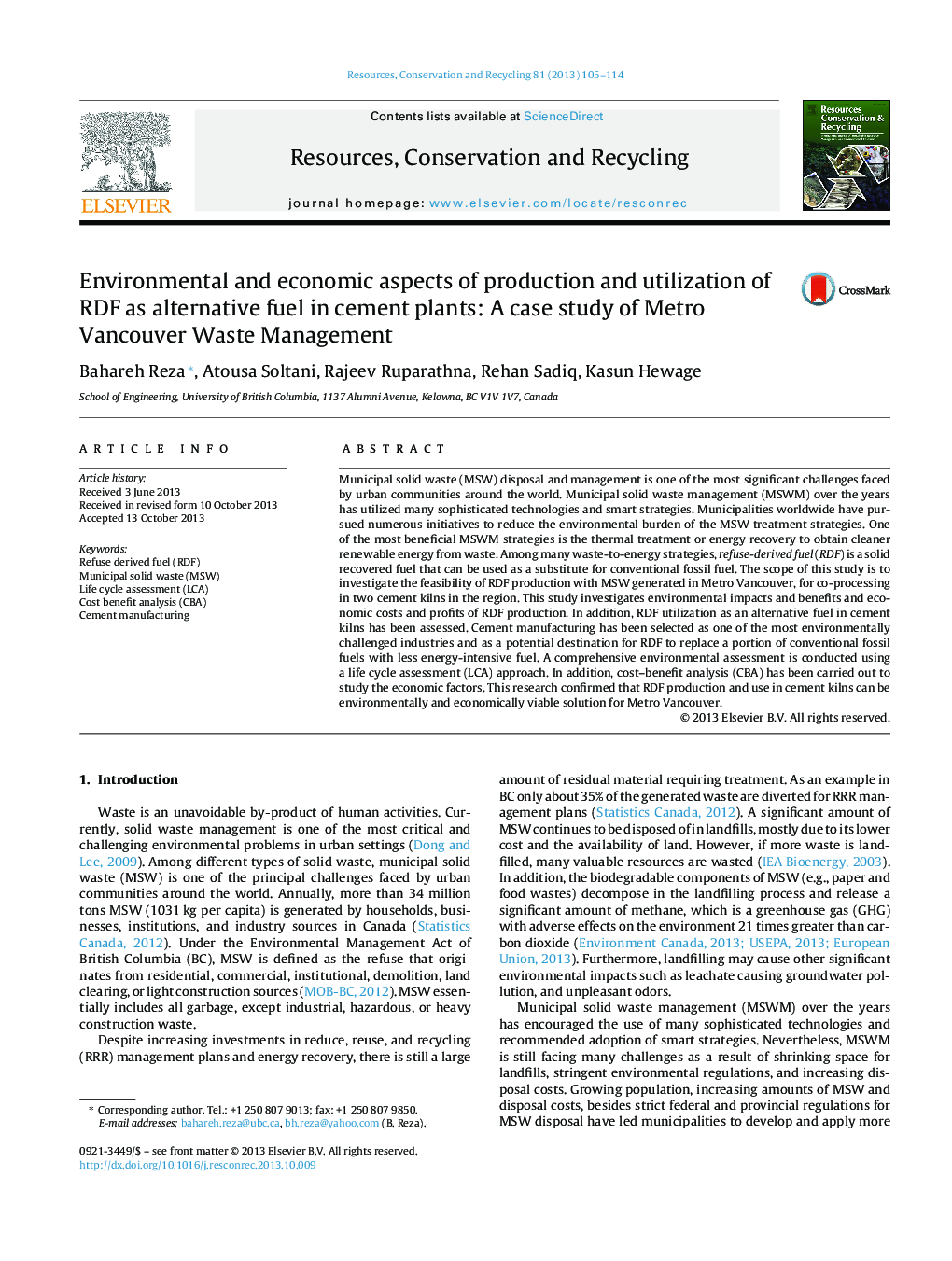| Article ID | Journal | Published Year | Pages | File Type |
|---|---|---|---|---|
| 1063118 | Resources, Conservation and Recycling | 2013 | 10 Pages |
•Environmental impacts and benefits of RDF production and use have been assessed.•Economic costs and profits of RDF production and use have been evaluated.•Utilization of RDF as an alternative fuel in cement kilns has been investigated.•Environmental assessment has been conducted using a life cycle assessment (LCA) approach.•Cost–benefit analysis (CBA) has been carried out to study the economic factors.
Municipal solid waste (MSW) disposal and management is one of the most significant challenges faced by urban communities around the world. Municipal solid waste management (MSWM) over the years has utilized many sophisticated technologies and smart strategies. Municipalities worldwide have pursued numerous initiatives to reduce the environmental burden of the MSW treatment strategies. One of the most beneficial MSWM strategies is the thermal treatment or energy recovery to obtain cleaner renewable energy from waste. Among many waste-to-energy strategies, refuse-derived fuel (RDF) is a solid recovered fuel that can be used as a substitute for conventional fossil fuel. The scope of this study is to investigate the feasibility of RDF production with MSW generated in Metro Vancouver, for co-processing in two cement kilns in the region. This study investigates environmental impacts and benefits and economic costs and profits of RDF production. In addition, RDF utilization as an alternative fuel in cement kilns has been assessed. Cement manufacturing has been selected as one of the most environmentally challenged industries and as a potential destination for RDF to replace a portion of conventional fossil fuels with less energy-intensive fuel. A comprehensive environmental assessment is conducted using a life cycle assessment (LCA) approach. In addition, cost–benefit analysis (CBA) has been carried out to study the economic factors. This research confirmed that RDF production and use in cement kilns can be environmentally and economically viable solution for Metro Vancouver.
